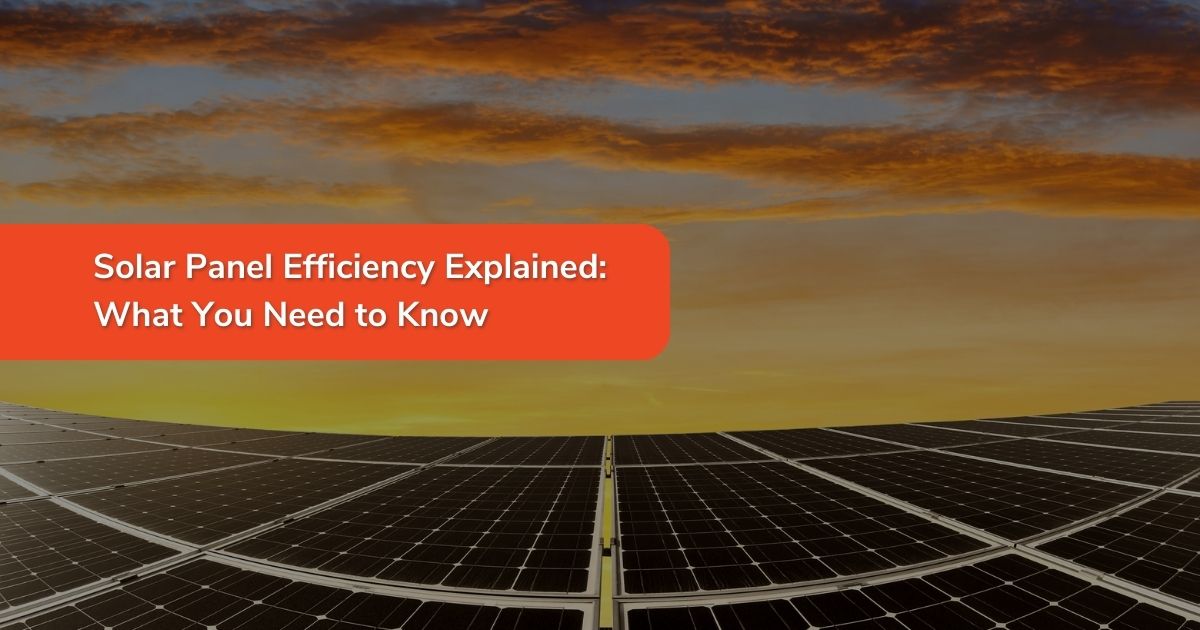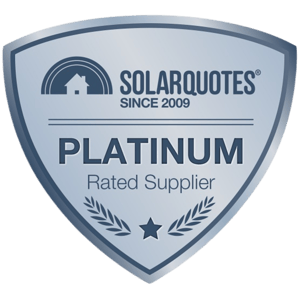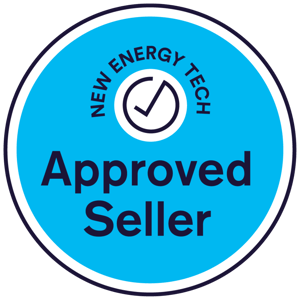Solar Panel Efficiency Explained: What You Need to Know

When it comes to harnessing the power of the sun, understanding solar panel efficiency is crucial in determining just how effective your renewable energy system will be. As an Australian homeowner looking to make an eco-friendly investment and contribute to your own savings, the decision to go solar isn't just about getting panels on your roof—it’s about getting the right panels for your needs. Below, we delve into the depths of solar efficiency and how you can optimize your solar setup to make the most of this green technology.
Understanding Solar Panel Efficiency
Solar panel efficiency refers to the amount of sunlight that is converted into electricity by a photovoltaic (PV) system. In simple terms, it’s a measure of how well your panels can do their job. For homeowners considering a switch to solar, this metric is paramount. It can not only influence the initial cost of installation but also your long-term savings.
Factors Affecting Solar Panel Efficiency
The efficiency of solar panels is influenced by a myriad of factors, including the technology used, the surface area of the panel, the quality of materials, the temperature the panels operate at, and the type of inverter used. These elements work in harmony to either amplify or dampen the effectiveness of capturing and converting sunlight into usable energy.
Why Solar Panel Efficiency Matters
Investing in high-efficiency solar panels means you can squeeze more power out of every ray of sunshine. This has cascading benefits, notably increasing your energy independence, reducing your electricity bills, and lessening your home's carbon footprint.
Benefits of High Solar Panel Efficiency
High-efficiency solar panels can be a game-changer for homeowners. They promise not just vague environmental benefits but tangible financial rewards that can elevate your home into a beacon of modern, efficient living.
Increased Energy Production
A more efficient panel means more power for your home. With cutting-edge technology available, it's possible to generate a significant amount of energy even with limited roof space.
Cost Savings
The more energy you produce, the less you need to buy from your utility company. High-efficiency panels allow you to get more savings over the life of your system, making them a worthwhile investment.
Environmental Impact
By generating more clean energy per panel, high-efficiency systems offer a more powerful way to reduce greenhouse gas emissions.
Long-term Investment
Solar panels are a long-term investment, and high-efficiency ones hold their value better over time. They generally have longer lifespans, meaning more years of green energy and return on investment.
Factors Affecting Solar Panel Efficiency
Unlike direct current (DC) electricity generated by solar panels themselves, the topic of efficiency is anything but straightforward. There are numerous variables that can impact how well your panels perform, and understanding them can aid you in making informed choices for your home.
Type and Technology of Solar Panels
Different types of solar panels (monocrystalline, polycrystalline, and thin film) come with varying degrees of efficiency. Researching these technologies is essential to match the right type to your situation.
Temperature and Weather Conditions
Solar panels work best in cold, direct sunlight. The harsh Australian summer can actually decrease efficiency, making the selection of the right brand a regional consideration.
Orientation and Tilt Angle
The direction your panels face and the angle at which they're installed can significantly impact the amount of sunlight they receive and, in turn, their efficiency.
Maintenance and Cleaning
Dirt, dust, and even bird droppings can accumulate and reduce the amount of light that enters the solar cells. Regular cleaning and maintenance are essential to keep your system operating at peak efficiency.
Inverter Efficiency and Solar Performance
In a solar PV system, the inverter plays a crucial role by converting DC from solar panels to AC for household use or grid connection. Traditional string inverters have limitations, as the system's overall performance is limited by the weakest panel. However, advancements in module-level power electronics like microinverters and power optimisers have gained popularity. These modern inverters optimise the performance of each solar module individually, increasing system efficiency and enabling detailed monitoring of panel health and performance.
Case Studies and Real-Life Examples
Case studies and real-life examples offer tangible proof of the benefits of high-efficiency solar systems. By hearing from other homeowners who have successfully made the switch, you gain valuable validation and insight into the potential savings and environmental impact. These firsthand accounts showcase the practicality and effectiveness of solar technology in reducing energy bills and carbon footprints.
Beaming with Solar Potential
The realm of solar panel efficiency is rich with potential for eco-conscious homeowners like you. It offers a dual reward of environmental stewardship and practical savings. It’s time to embrace smart energy solutions and make the switch to solar. Contact us at Smart Energy Answers to begin your solar journey and unlock the full potential of solar technology. By partnering with us, you’re taking the first step toward a brighter, greener future.
%20(1).png?width=265&height=96&name=www.smartenergyanswers.com.auhs-fshubfsSmart%20Energy%20Answers%20Logo%20(HIRES)%20(1).png)

.png?width=514&height=121&name=Tesla%20Powerwall%203%20(new).png)







